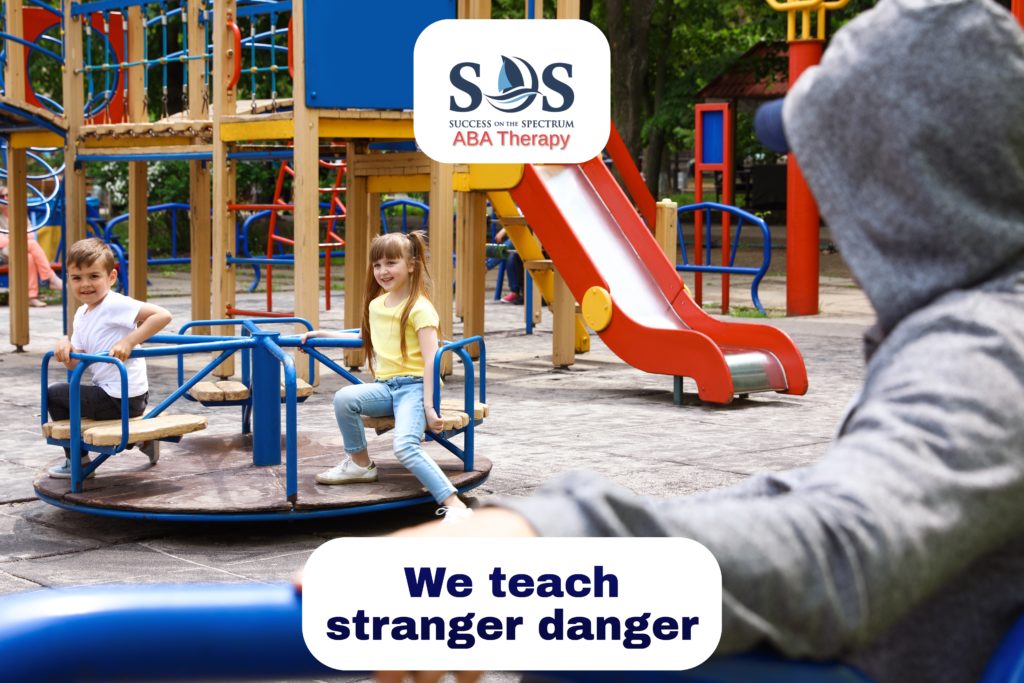Choosing the right applied behavior analysis therapist in Lithia is important in supporting your child’s developmental progress. Applied Behavior Analysis (ABA) is a recognized, evidence-based approach for helping children with autism build communication, social, and adaptive skills.
A qualified therapist provides structured, individualized support that addresses specific behavioral goals while fostering long-term growth. Families in Lithia benefit from access to professionals who understand the importance of early, consistent intervention. By selecting a therapist with the right qualifications, experience, and approach, parents can ensure their child gets effective care tailored to their unique needs.
What to Look for in an ABA Therapist in Lithia
Selecting the right ABA therapist in Lithia is crucial in supporting your child’s behavioral and developmental needs. Applied Behavior Analysis (ABA) is most effective when delivered by professionals who combine clinical expertise with compassion, consistency, and a child-centered approach. Understanding what to look for in a therapist helps families make adequate choices that align with their goals and values.Credentials and Professional Experience
Families should ensure that the therapist has appropriate education and supervised experience in ABA. While therapists often work under the guidance of a Board-Certified Behavior Analyst (BCBA), their qualifications still matter significantly.- Education and training: Look for therapists with a psychology, education, or behavioral sciences background.
- Supervised hours: Ensure they have completed the required supervised training under a certified BCBA.
- Ongoing professional development: Therapists should stay current with evidence-based practices and ethical standards.
Communication and Responsiveness
An effective ABA therapist communicates clearly with both the child and the family. They should be approachable, patient, and skilled at explaining techniques in simple, practical terms.- Transparency: The therapist should explain strategies, goals, and expectations clearly.
- Responsiveness to feedback: A willingness to adjust approaches based on parental input is essential.
- Consistency in sessions: A calm, predictable demeanor helps children feel secure and engaged.
Child-Centered, Respectful Approach
The most successful ABA therapy is rooted in understanding and respect for each child’s individuality. Therapists should focus on strengths while addressing challenges in a positive, supportive environment.- Engagement through play: Using preferred activities to teach skills promotes cooperation.
- Respect for sensory and emotional needs: Therapists should adapt methods to fit the child’s comfort level.
- Focus on meaningful goals: Therapy should target behaviors that improve daily life and long-term development.
Why a Board Certified Behavior Analyst in Lithia Matters
When locating ABA therapy for a child with autism, working with a Board Certified Behavior Analyst (BCBA) in Lithia is essential for ensuring clinical quality, ethical oversight, and meaningful outcomes. A BCBA brings advanced education, supervised experience, and credentialed authority to assess, design, and monitor behavioral interventions. Their role is foundational in guiding effective therapy that is both evidence-based and individualized.Clinical Expertise and Treatment Planning
A BCBA is trained to perform detailed assessments and create structured, goal-oriented treatment plans. These plans address a child’s unique behavioral challenges and strengths, aligning therapy with measurable objectives.- Functional behavior assessments (FBAs): Identify the reasons behind specific behaviors.
- Custom treatment plans: Outline targeted interventions tailored to the child’s developmental needs.
- Skill acquisition programs: Break down complex skills into achievable steps with clear benchmarks.
Supervision and Quality Assurance
BCBAs are responsible for supervising the implementation of therapy by Registered Behavior Technicians (RBTs) or therapists. Their ongoing oversight maintains the integrity and consistency of ABA services.- Session reviews: Monitor the quality and fidelity of therapy delivery.
- Data analysis: Evaluate progress based on documented outcomes and make timely adjustments.
- Team coordination: Collaborate with therapists, educators, and families to maintain a cohesive approach.
Ethical Practice and Professional Standards
Board certification ensures the analyst adheres to established ethical and professional standards. This protects families and reinforces trust in the therapeutic relationship.- Ethical decision-making: Upholds the child’s dignity, autonomy, and best interests.
- Transparent communication: Families are informed of goals, methods, and results.
- Continuous learning: BCBAs are required to maintain certification through ongoing education.
Evaluating the Scope of ABA Therapy Services in Lithia
When selecting an ABA provider, it is important to evaluate the full range of available services. Families should consider how well ABA therapy services in Lithia address the child’s specific needs and the family’s goals. A comprehensive program offers flexibility, individualized care, and evidence-based practices across various environments.Core Components of ABA Therapy
A strong ABA program in Lithia typically includes multiple service elements to support behavior change, skill development, and family education. These components should be clearly explained and accessible to families from the outset.- Behavioral assessments: Initial evaluations identify skill levels, problem behaviors, and goals.
- Individualized treatment plans: Tailored interventions target specific developmental and behavioral needs.
- Data collection and analysis: Progress is monitored using measurable data to guide decisions.
Service Delivery Settings and Options
ABA therapy services in Lithia may be delivered in various settings depending on the child’s needs and the provider’s capabilities. Flexibility in location and structure supports consistent learning across different environments.- Clinic-based sessions: Provide a structured environment for focused interventions.
- In-home therapy: Allows real-time support in a familiar setting, reinforcing everyday skills.
- School consultations: Collaboration with educators promotes consistency in behavior strategies.
- Telehealth options: Remote services may be available for families requiring flexible scheduling.
Family Training and Support Services
An essential part of ABA therapy includes educating and involving family members. Providers should offer guidance to help families apply strategies outside of formal sessions.- Parent training sessions: Teach techniques for responding to behaviors and supporting skill development.
- Ongoing communication: Regular updates help families stay informed and involved.
- Resource coordination: Assistance with navigating insurance, scheduling, and care planning.
Considering Individualized Treatment Approaches
Individualized treatment is the foundation of effective ABA therapy. No two children experience autism in the same way, and the most successful outcomes are achieved when therapy is customized to meet each child’s unique strengths, challenges, and learning styles. Families should prioritize programs emphasizing personalized care and data-informed decision-making when considering applied behavior analysis.Adapting to Developmental Needs
ABA programs that support individualized treatment begin with a detailed assessment of a child’s behavior, communication, and functional skills. Therapists use this information to create developmentally appropriate goals that are realistic and attainable.- Age-appropriate milestones: Therapy focuses on building skills suited to the child’s current level.
- Behavioral priorities: Goals target behaviors that most impact daily functioning and quality of life.
- Learning style considerations: Strategies are adjusted to fit the child’s preferred engaging method.
Setting Personalized Goals
Therapists collaborate with families to identify goals that reflect immediate needs and long-term aspirations. These goals are broken into manageable steps and monitored regularly to assess progress.- Short-term objectives: Focus on immediate skill acquisition or reduction of challenging behaviors.
- Long-term outcomes: Address broader goals such as school readiness, independence, or social participation.
- Flexible goal adjustment: Goals are reviewed and revised as the child advances through therapy.
Monitoring Progress and Making Adjustments
Effective individualized therapy relies on ongoing data collection and regular plan adjustments. Therapists track outcomes closely to ensure strategies remain effective and that each child continues moving forward.- Daily data tracking: Measures how often and how well target behaviors are performed.
- Regular evaluations: Periodic reviews assess whether interventions are achieving the intended results.
- Responsive updates: Modifications are made promptly to reflect new needs or challenges.




